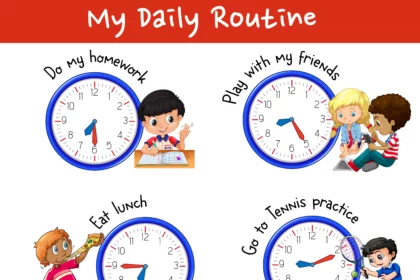Parenting a child with ADHD can be an incredibly rewarding journey filled with unique joys and challenges. While celebrating the triumphs and navigating the complexities of ADHD, it's essential for parents to remember that their well-being is paramount. The relentless demands of managing behaviors, advocating for their child's needs, and maintaining a sense of balance can often lead to stress, exhaustion, and even burnout. This article delves into the specific challenges faced by parents of children with ADHD, emphasizes the critical importance of self-care, and provides practical strategies and resources to support parents in their journey.
The Challenges of Parenting a Child with ADHD
Raising a child with ADHD often presents a unique set of hurdles that can significantly impact family dynamics and parental well-being. These challenges extend beyond the typical trials of parenthood and require specific strategies and support systems. Here's a closer look at some of the common difficulties:
| Challenge | Description |
|---|---|
| Behavioral difficulties | Children with ADHD may exhibit impulsive behaviors, have difficulty following instructions, and experience emotional outbursts, requiring parents to adapt their parenting styles and develop effective management strategies. |
| Disrupted routines | ADHD can make it challenging for children to adhere to routines, such as bedtimes or mealtimes, leading to disruptions in family life and increased stress for parents. |
| Strained relationships | The added stress and demands of parenting a child with ADHD can strain relationships with spouses, other children, and extended family members. Increased marital conflict is a potential consequence of this stress, as indicated by research. |
| Social isolation | Parents of children with ADHD may feel isolated or misunderstood by others who haven't experienced the unique challenges of raising a child with ADHD. This can lead to feelings of loneliness and a lack of support. |
| Increased responsibilities | Parents often take on extra responsibilities, such as managing medication, attending therapy appointments, and advocating for their child's needs in school. These added duties can be time-consuming and exhausting. |
| Financial burden | The costs associated with ADHD treatment, such as therapy or medication, can place a financial strain on families, adding another layer of complexity to the parenting journey. |
| Impact on parents' own well-being | Studies have shown that parents of children with ADHD experience higher stress levels, less satisfaction as parents, and higher rates of depression than parents of other children. |
| Parental ADHD | It's important to acknowledge that some parents of children with ADHD may have their own ADHD symptoms, which can further complicate the challenges they face. For instance, mothers with ADHD may face unique challenges due to potential underdiagnosis or lack of treatment. |
| Negative impact on parenting behaviors | Research suggests that parental ADHD symptoms can negatively affect parenting behaviors, such as consistency and over-reactivity. This can create a cyclical pattern where parental challenges contribute to difficulties in managing the child's ADHD. |
| Sense of grief or loss | Parents may experience a sense of grief or loss related to their child's diagnosis, as they may grieve the loss of the “typical” childhood they envisioned. This emotional aspect can significantly impact parents' well-being and requires acknowledgment and support. |
To illustrate these challenges, consider the experience of Grace, a mother diagnosed with ADHD in her 40s. Reflecting on her childhood, she recalls the lack of parental guidance and the frequent punishments she received for behaviors stemming from her undiagnosed ADHD. This anecdote highlights the generational impact of ADHD and the importance of recognizing and addressing it in both children and parents. Another parent, sharing their story, emphasizes the years of guilt, frustration, and hopelessness they experienced while raising their son with ADHD. These real-life experiences underscore the emotional toll that parenting a child with ADHD can take and the need for support and self-care.
The Importance of Self-Care for Parents
Self-care is often misconstrued as a selfish indulgence, but in reality, it's a fundamental pillar of effective parenting, especially for parents of children with ADHD. When parents prioritize their own well-being, they create a ripple effect that positively influences their child, their family, and themselves. Here's why self-care is not just important, but essential:
- Reduces stress and burnout: Engaging in self-care activities helps parents manage stress, reduce the risk of burnout, and improve their overall physical and mental well-being. This includes paying attention to physical self-care, such as nutrition, exercise, and rest, which are crucial for maintaining stamina and managing stress, especially during challenging times.
- Improves coping capacity: Self-care equips parents with the emotional resilience and coping mechanisms needed to navigate the challenges of raising a child with ADHD.
- Increases emotional availability: When parents are feeling refreshed and recharged, they are more emotionally present and available for their children, fostering a stronger parent-child bond.
- Enhances parenting skills: Self-care can improve parents' patience, empathy, and ability to respond effectively to their child's needs, leading to more positive interactions and a more supportive environment.
- Improves parent-child relationship: Prioritizing self-care allows parents to create a more positive and nurturing relationship with their child, fostering connection and understanding.
- Positive impact on the child: When parents are taking care of themselves, they are better able to provide consistent, loving care to their child, which can lead to improved behavior and emotional regulation in the child.
- Mindfulness and self-compassion: Cultivating mindfulness and self-compassion can be incredibly beneficial for parents of children with ADHD. These practices help parents regulate their emotions, reduce stress, and approach challenges with greater awareness and kindness towards themselves.
- Enhanced parent-child interaction: Research suggests that parental mindfulness and self-care can contribute to a more positive and supportive parent-child interaction. This, in turn, can potentially improve the child's attentional skills and overall well-being.
Resources and Support for Parents of Children with ADHD
Parenting a child with ADHD can sometimes feel isolating, but it's crucial to remember that you are not alone. Numerous resources and support systems are available to provide guidance, encouragement, and a sense of community. Here are some valuable organizations that offer support and information:
- CHADD (Children and Adults with Attention-Deficit/Hyperactivity Disorder): CHADD is a leading national organization that provides support groups, educational resources, and online communities for parents and individuals with ADHD. They offer a parent-to-parent educational support program where parents can connect with others who understand their experiences, learn more about ADHD, and discover effective parenting strategies. CHADD also hosts online communities specifically designed for parents and caregivers of children with ADHD, providing a safe space to share experiences, seek advice, and find support.
- Attention Deficit Disorder Association (ADDA): ADDA is another valuable resource that offers online support groups, webinars, and resources specifically for adults with ADHD.
- National Resource Center on ADHD: This organization provides comprehensive information, resources, and expert advice on ADHD, helping parents stay informed and access valuable tools.
- ADDitude Magazine: ADDitude is an online magazine that provides a wealth of articles, resources, and support for individuals and families affected by ADHD.
Connecting with other parents through support groups can be incredibly beneficial. It provides a sense of community, reduces feelings of isolation, and offers access to valuable resources and coping strategies. Sharing experiences and advice with others who understand the challenges can be incredibly comforting and empowering.
Practical Self-Care Strategies for Busy Parents
In the whirlwind of parenting a child with ADHD, finding time for self-care can seem like an impossible feat. However, even small, manageable acts of self-care can make a significant difference in your overall well-being and your ability to parent effectively. Here are some practical strategies categorized for easy integration into your daily routine:
Mind:
- Practice mindfulness: Take a few minutes each day to focus on your breath, engage in a mindfulness meditation, or simply observe your thoughts and feelings without judgment.
- Create a supportive environment: Declutter your home, organize your space, and create a calming atmosphere to promote relaxation and reduce stress.
- Set realistic expectations: Remember that perfection is an illusion. Embrace the imperfections of parenting and focus on progress, not perfection. This applies to both yourself and your child.
Body:
- Prioritize sleep: Aim for 7-9 hours of sleep each night. Establish a consistent sleep schedule and create a relaxing bedtime routine to improve sleep quality.
- Engage in physical activity: Exercise releases endorphins, which have mood-boosting effects. Even a short walk, some stretching, or a quick yoga session can be beneficial.
- Eat a healthy diet: Nourishing your body with healthy foods can improve your energy levels and overall well-being.
- Stay hydrated: Drink plenty of water throughout the day to support your physical and mental health.
Spirit:
- Make time for yourself: Schedule at least 15-20 minutes each day for an activity you enjoy, such as reading, taking a bath, listening to music, or pursuing a hobby.
- Connect with others: Spend time with friends and family, join a support group, or connect with other parents online to foster social connections and reduce feelings of isolation.
- Learn to say no: It's okay to decline requests or activities that will add to your stress level. Setting boundaries is an essential part of self-care.
Remember that even small acts of self-care can contribute to building resilience and maintaining balance in your life. It's about incorporating manageable self-care practices into your daily routine rather than striving for grand gestures.
Recognizing Signs of Burnout
It's crucial for parents to be aware of the signs of burnout and to take proactive steps to address it before it becomes overwhelming. Recognizing these signs early on can prevent escalation and protect the parent-child relationship. Here are some common indicators of parental burnout:
- Emotional exhaustion: Feeling drained, overwhelmed, and emotionally detached from your child and family.
- Physical fatigue: Experiencing chronic tiredness and lack of energy, despite getting adequate rest.
- Mental overload: Struggling with cognitive fatigue, difficulty concentrating, and feeling mentally overwhelmed by the demands of parenting.
- Increased irritability and frustration: Feeling easily irritated, experiencing frequent mood swings, and having a shorter fuse than usual.
- Loss of interest in activities you once enjoyed: A decline in motivation and a sense of apathy towards hobbies or social interactions that previously brought you joy.
- Sleep difficulties: Experiencing insomnia, difficulty falling asleep, or frequently waking up during the night.
- Physical symptoms: Developing physical symptoms such as headaches, muscle tension, or digestive issues as a result of chronic stress.
If you recognize any of these signs in yourself, it's essential to seek support and prioritize self-care. Don't hesitate to reach out to your partner, friends, family, or a mental health professional for guidance and assistance.
Conclusion
Parenting a child with ADHD is a journey filled with both challenges and rewards. By prioritizing self-care, parents can navigate this journey with greater resilience, reduce stress, and create a more positive and supportive environment for their child and the entire family. Remember that self-care is an act of love, not selfishness. It's about nurturing your own well-being so you can be the best parent you can be. Take the time to recharge, seek support when needed, and remember that you are not alone in this journey.











